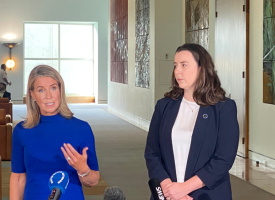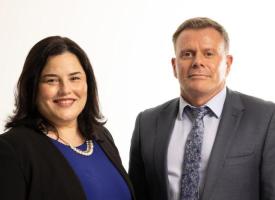GP leaders discuss primary care issues with Minister
The leaders of members of United General Practice Australia (UGPA) yesterday met Health Minister Tanya Plibersek at Parliament House in Canberra to discuss the major issues affecting hardworking GPs across the country.
Discussions centred on medical workforce, changes to Practice Incentive Payments (PIP), and the imminent implementation of the Personally Controlled Electronic Health Record (PCEHR).
1. Workforce
UGPA advised the Minister that ‘generalism’ needs to be supported and promoted for GPs and other specialists. The Minister was reminded of the need to attract more medical students into general practice to meet future health service demand; the need to build general practice training capacity, which will require more support for trainers; and the need to address the disconnects in medical training, which includes issues with State and Territory Governments.
UGPA will prepare a report for the Minister on the disconnects in the system and suggest solutions for the Commonwealth to take to the States.
2. Practice Incentive Payments (PIP)
UGPA told the Minister that there are serious concerns about changes to PIP incentives without proper consultation with the profession, including with the PIP Advisory Group, which had not been consulted on the most recent changes to PIP for immunisation, diabetes, cervical cancer, e-health, and after hours GP services.
It was pointed out that the changes had removed significant funding from many general practices, which will have a significant impact on clinical safety, quality and public health. The changes will also have a negative impact on general practice accreditation.
The Minister was advised that fledgling Medicare Locals do not yet have the capacity to take over after-hours services from practices in certain areas that are currently providing quality services. UGPA said that the shifting of after-hours PIP funding to Medicare Locals may not guarantee better services, and could put existing successful services at serious risk.
UGPA was invited to provide the Minister with examples of where communities with current quality GP after-hours services would receive lesser services under the Medicare Locals model.
3. PCEHR
UGPA made it clear to the Minister that all UGPA members shared the PCEHR vision but could not support the PCEHR implementation in its current form.
The AMA reiterated its concerns that there is no new Medicare funding to compensate doctors for the extra work needed to be undertaken to prepare and maintain quality useful shared health summaries for the PCEHR.
UGPA called for a review of timelines for the PCEHR implementation to allow general practices a more gradual uptake in line with their capacity to sign up to the PCEHR.
It was suggested that implementation would be smoother and more attractive if all general practices had access to the support that was made available to the PCEHR WAVE sites (the test sites).
UGPA recommended that the Minister change the requirements for the e-health PIP and delay the changes until the PCEHR is fully established. Without the delay, GPs will be unfairly penalised.
The Minister said she is hearing significantly conflicting views about the work required to prepare shared health summaries for the PCEHR. She said she would consult further, but the rollout will continue as currently planned. She said she would make more enquiries take further advice about the e-health PIP.
The Minister said she wishes to remain engaged with UGPA and with UGPA members as the PCEHR implementation proceeds so she can hear first hand the positive and negative experiences of general practices.
UGPA comprises the Royal Australian College of General Practitioners, the Australian Medical Association, the Australian General Practice Network, General Practice Registrars Australia, the Australian College of Rural and Remote Medicine, and the Rural Doctors Association of Australia.
The Australian General Practice Network was unable to send a representative to the meeting.
For further information:
RACGP Dr Liz Marles, 0400 901 902
AMA Dr Steve Hambleton, 0418 731 570
GPRA Dr Edward Vergara, 0406 214 076
ACRRM Dr Richard Murray, 07 3105 8200
RDAA Dr Paul Mara, 0466 665 933



